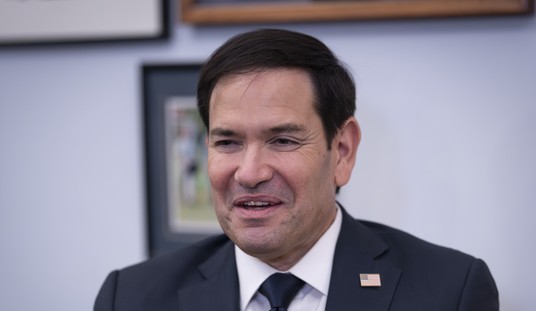Like every other major federal intervention into the private economy, Obamacare was foisted upon us under the guise of solving a crisis. In this case, they proposed a complete government takeover of healthcare for all Americans – all for the supposed goal of covering those who are uninsured. Never mind that even after Obamacare is implemented and destroys the market for those who are already insured there will still be at least 30 million uninsured.
But like most government interventions, this problem has been engendered by previous government intrusions into healthcare. The federal government’s officious involvement in the insurance market is the pre-existing condition to most of the cost issues associated with healthcare. While nothing short of utopia will ever offer full quality health insurance to every individual in the country, the government-induced market distortions have expanded and magnified the problem for those who are uninsured.
For this piece I’d like to focus on the man-made problem of employer-based health insurance. Who on earth thinks it’s a good idea for access to insurance to be tied to employment? It’s bad enough that government interventions over the years has encouraged a market where a third party; namely, an insurance company, is responsible for primary payment of all healthcare fees, not just catastrophic or large-scale health costs. We are stuck with a fourth-party payer system in which employers pay for that insurance.
In 1942, Congress passed the Stabilization Act, which instituted wage controls in the workforce. Like every other deleterious government intervention, the wage controls led to unintended consequences. In order to compete in the labor market, employers began to look for other means of compensation to attract talent and reward productive employees. This gave rise to the tax exemption for employer-provided health insurance officially created by a 1954 IRS ruling. Concurrently, labor unions began engaging in collective bargaining for fringe benefits in addition to wages.
Consequently, over the following decade it became standard for employers to offer health insurance as part of an employee’s compensation package. This in turn distorted the market and tilted the playing field away from the individual. It also dramatically spiked the cost of health insurance by over-utilizing health coverage and generating artificially increased demand. This system also shielded consumers from the real cost of the coverage. Hence, we are now stuck with a situation where those who don’t enjoy employer-provided coverage are holding the bag of higher costs – all brought to you by government’s infringement on the free market.
Now, Obamacare has exacerbated that problem and has actually punished those who buy private insurance – the very people who help lower the cost of healthcare. As someone who doesn’t enjoy tax-exempt employer-provided insurance, I purchased a private plan for my family. Given that we were using our own money, we were cost conscience and purchased the cheapest plan that suited our needs. Our premium was $440 a month with a $5,000 deductible and $10,000 cap on out-of-pocket costs. But all primary care visits and generic drug prescriptions were completely covered, and visits to a specialist had a $40 co-pay. Everything we typically needed as a healthy family with two kids was covered except for emergency hospital visits, which would be subject to the high deductible. Even that was capped at $10,000 – undoubtedly a high number – but would help us avoid bankruptcy.
Hence, it actually worked like insurance for us, while also covering almost all of the regular bills. Despite the higher costs of healthcare and insurance baked into the cake, and the market tilted against private purchasers, we still found a plan that was reasonable.
Fast-forward to Obamacare, and now we are stuck without a plan. We are punished for actually being cost-conscience and not over-utilizing the system. Worst of all, we don’t get the same tax exemption that employers receive on behalf of their workers.
The best plan of action would be for the government to stop distorting the market and eliminate the healthcare exemption for employers while cutting the corporate tax rate to offset the defacto tax increase. Imagine trading this nearly-$300 billion distortion in the insurance market for an across-the-board tax cut? Obviously that is politically untenable. The next best course of action is to offer individuals the same exemption employers get. It is simple unconscionable that Democrats refuse to sign onto this commonsense and fair approach. Couple this with purchasing insurance across state lines, and insurance will become portable like any other product.
That won’t handle every last person with pre-existing conditions, but a lot of people incur the most trouble with health insurance when they have children born with medical issues during a lapse of employment. Moreover, the rest of the population will have the ability to support their families with dignity and self-respect at all stages of life.
But dignity, self-respect, independence, and prosperity are not part of the plan. They are obstacles in the eyes of the liberal elite. They want complete dependence on government, thereby cementing their perennial power. Making basic goods and services unaffordable is just the cost of doing business.
Cross-posted from The Madison Project













Join the conversation as a VIP Member